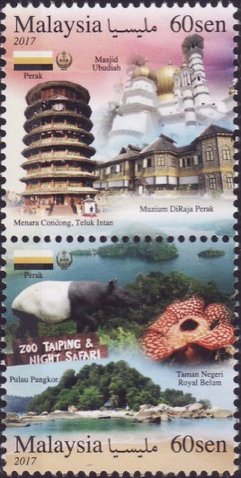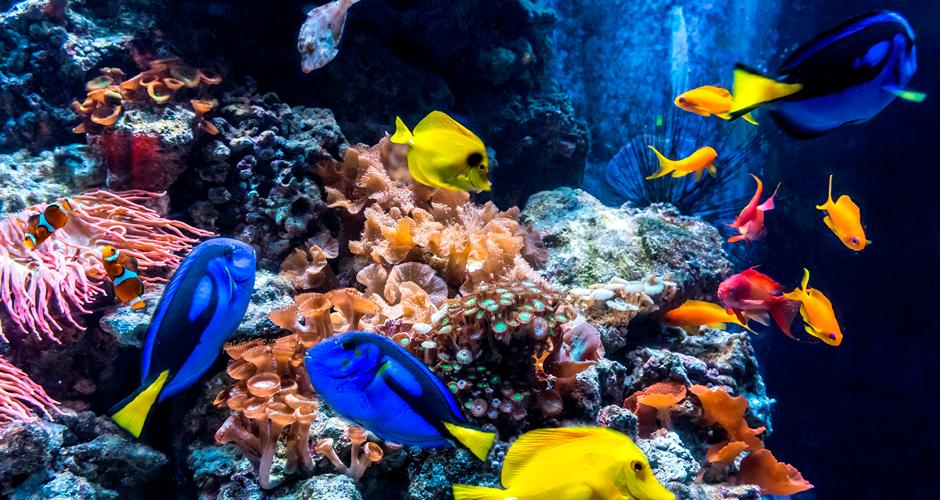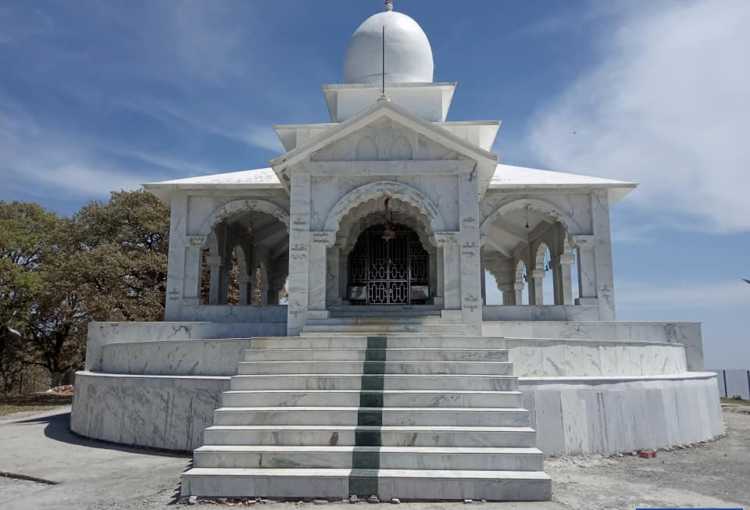Se-tenant: International Year Of Sustainable Tourism (Malaysia 2017)
International Year Of Sustainable Tourism (Malaysia 2017)
21 November (Malaysia ) within release International Year Of Sustainable Tourism goes into circulation Se-tenant International Year Of Sustainable Tourism face value 1.20 Malaysian ringgit
| Se-tenant International Year Of Sustainable Tourism in catalogues | |
|---|---|
| Colnect codes: | Col: MY 2017-21B |
Se-tenant is square format.
Also in the issue International Year Of Sustainable Tourism:
- Se-tenant - International Year Of Sustainable Tourism face value 1.20;
- Se-tenant - International Year Of Sustainable Tourism face value 1.20;
- Se-tenant - International Year Of Sustainable Tourism face value 1.20;
- Stamp - Views of Pahang face value 60;
- Stamp - Views of Trengganu face value 60;
- Stamp - Views of Trengganu face value 60;
- Stamp - Views of Perak face value 60;
- Stamp - Views of Pahang face value 60;
- Stamp - Views of Perak face value 60;
|
Data entry completed
46%
|
|
|---|---|
| Se-tenant International Year Of Sustainable Tourism in digits | |
| Country: | Malaysia |
| Date: | 2017-11-21 |
| Emission: | Commemorative |
| Format: | Se-tenant |
| Face Value: | 1.20 Malaysian ringgit |
Se-tenant International Year Of Sustainable Tourism it reflects the thematic directions:
Mosquitoes, the Culicidae, are a family of small flies consisting of 3,600 species. The word mosquito (formed by mosca and diminutive -ito) is Spanish and Portuguese for little fly. Mosquitoes have a slender segmented body, one pair of wings, three pairs of long hair-like legs, and specialized, highly elongated, piercing-sucking mouthparts. All mosquitoes drink nectar from flowers; females of some species have in addition adapted to drink blood. The group diversified during the Cretaceous period. Evolutionary biologists view mosquitoes as micropredators, small animals that parasitise larger ones by drinking their blood without immediately killing them. Medical parasitologists view mosquitoes instead as vectors of disease, carrying protozoan parasites or bacterial or viral pathogens from one host to another.
Marine life, or sea life or ocean life, refers to the plants, animals and other organisms that live in the salt water of the sea or ocean, or the brackish water of coastal estuaries. At a fundamental level, marine life helps determine the very nature of our planet. Marine organisms produce much of the oxygen we breathe. Shorelines are in part shaped and protected by marine life, and some marine organisms even help create new land. Altogether there are 230,000 documented marine species, including over 16,000 species of fish, and it has been estimated that nearly two million marine species are yet to be documented. Marine species range in size from the microscopic, including plankton and phytoplankton which can be as small as 0.02 micrometres, to huge cetaceans (whales, dolphins and porpoises) which in the case of the blue whale reach up to 33 metres (109 feet) in length, being the largest known animal.
A temple (from the Latin word templum) is a building reserved for religious or spiritual rituals and activities such as prayer and sacrifice. It is typically used for such buildings belonging to all faiths where a more specific term such as church, mosque or synagogue is not generally used in English. These include Hinduism, Buddhism, and Jainism among religions with many modern followers, as well as other ancient religions such as Ancient Egyptian religion.
Tourism is travel for pleasure or business; also the theory and practice of touring, the business of attracting, accommodating, and entertaining tourists, and the business of operating tours. Tourism may be international, or within the traveller's country. The World Tourism Organization defines tourism more generally, in terms which go "beyond the common perception of tourism as being limited to holiday activity only", as people "traveling to and staying in places outside their usual environment for not more than one consecutive year for leisure, business and other purposes". Tourism can be domestic or international, and international tourism has both incoming and outgoing implications on a country's balance of payments. Today, tourism is a major source of income for many countries, and affects the economy of both the source and host countries, in some cases being of vital importance.



